
‘Mutations in Citizenship’:
Activist and translational perspectives on migration and mobility in the age of globalisation
A research symposium co-hosted by the Genealogies of Knowledge project and the Centre for Translation and Intercultural Studies, University of Manchester, UK
23 March 2018 | Kanaris Theatre, Manchester Museum
Programme Venue Registration Contact
Invited speaker abstracts
| Moira Inghilleri (University of Massachusetts Amherst) |
|---|
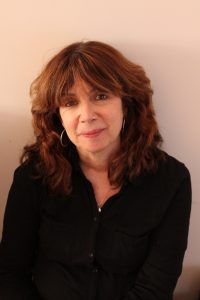
Citizen Media, Migration, and Translation
My talk examines different forms of citizen media that pertain to the experience of migration and involve some type of translation. The projects produced by individuals or collectives reflect the diverse types of and motivations for their migration. In some instances, citizen media bears the hallmarks of what Hamid Naficy termed ‘accented’ to describe the kinds of performances of identity in relation to cinema that are the outgrowth of displaced exiles living in a diaspora that will never be home. They can also be moments in which individuals reclaim and recodify their present experiences without nostalgia for their homeland or any sense of victimhood in the communities in which they live, work or study. The citizen media example I discuss include music and film-making, street art, agitprop theater and other artistic forms that provide a context for migrants to give voice to their own identities and experiences. Each example suggests some change in cultural meanings or historical social relationships from one geographical setting to another. Citizen media can do more, however, than provide a context for imaginatively portrayed experiences of migration and its articulations in public communal spaces. It can translate those experiences into meaningful contributions to both local and international political discourse over human or labor rights through forms of activism that enable migrants to intervene on one another’s behalf even in contexts where protest is difficult or prohibited. |
|
Moira Inghilleri is Associate Professor of Translation and Interpreting Studies and the Director of the Program in Translation and Interpreting Studies at the University of Massachusetts Amherst. She is the author of Translation and Migration (Routledge 2017) and Interpreting Justice: Ethics, Politics and Language (Routledge 2012). She was co-editor of The Translator from 2011-2014 and review editor from 2006-2011. She guest-edited and contributed articles in two special issues of The Translator: Bourdieu and the Sociology of Translating and Interpreting (2005) and Translation and Violent Conflict (2010, co-edited with Sue-Ann Harding). Her research has appeared in Translation Studies, The Translator, Target, Language and Communication, Linguistica Antverpiensia and a number of edited collections. She is currently Series Editor (with Michael Cronin) of the Routledge book series, New Perspectives in Translation and Interpreting Studies.
|
| Polina Kliuchnikova (Durham University) |
|---|
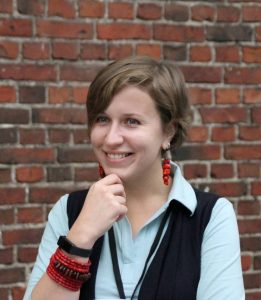
At the Intersection of ‘Citizenship’ and ‘Language’: Testing Linguistic Competence of Would-Be Citizens in the Russian Federation
Most migrants coming to the Russian Federation from other former Soviet countries are required to prove their competence in the Russian language to be able to work or study in the country legally. Applicants’ language proficiency (as well as their knowledge of Russian history and legislation) is also tested as part of the process of obtaining leave to remain or Russian citizenship. There is a significant difference in how language tests are approached in the two cases. Migrant examinees seemingly tend to take language certification for a work permit less responsibly: they often sit the test without preparation and re-sit a failed test as soon as they can; they buy fake certificates on the black market or try to circumvent legal registration completely. When it comes to passing the citizenship test, on the other hand, applicants invest substantial amounts of time, effort and money, and seek entirely different forms of external support (such as language tuition) to ensure they pass the test. Obviously, higher levels of motivation in the latter case are influenced by the greater significance of the procedure and the legal status obtained through it. However, another important element of what happens here is the complex performative intertwining of the idea of ‘citizenship’ and of conceptions of ‘linguistic competence’ which takes place in the course of the process. The paper will explore precisely this intertwining, taking the ‘language test’, as part of the ‘citizenship test’, as a key institutional locus out of which this intertwining starts to evolve and take shape. It will explore a range of discourses articulated from a constellation of different positions around the test. An initial level of analysis is, of course, the official discourse of Russian state policy and legislation which constitutes the language test as a condition for Russian citizenship in the first place. This paper, however, will focus mainly on discourses that are somewhat less easy to seize, analyse and interpret, yet which are nevertheless essential to understanding the way in which language and citizenship intertwine in this context. These include: a. the discourse of migrants (citizenship applicants) themselves (specifically their narratives of going through the citizenship tests); b. the perspective of professionals and activists engaged in supporting the process in one capacity or another (language tutors, members of migrant support organisations, exam officers, migration services staff); and c. social and traditional media-based public discussions around the both pragmatic and symbolic meanings of language proficiency when it comes to obtaining Russian citizenship. The aim of the paper is to see what happens both to ‘citizenship’ and to that of ‘language’ when these notions are put through these discourses. |
|
Polina Kliuchnikova is currently an OWRI Postdoctoral Research Associate at School of Modern Languages and Cultures, Durham University, which runs a transnational strand of the ‘Cross-Language Dynamics: Reshaping Community’ project. Her current research project, ‘Language Border: Russian in FSU Migration’, focuses on ‘Russian’ as language of transnational interethnic communication in the context of migration from the post-Soviet space to the present-day Russia and explores three related areas of sociolinguistic experience – government-controlled language certification as part of immigration regulations, migrants’ day-to-day adjustment to language regimes of receiving country, and activist initiatives in the area of language provision and support for migrants. She received her degree of Doctor of Philosophy from Durham University in 2016; her PhD project, ‘Linguistic Biographies and Communities of Language of Russian speakers of Great Britain’, based on ethnographic fieldwork with recent post-Soviet Russian-speaking residents of the UK (North-East England specifically), explored linguistic factors shaping individual migrant trajectories and emerging group identities. Her research interests include language ideologies and policies, language diversity and multilingualism in contemporary urban settings, migrant narratives and identity studies.
|
| Tanja R. Müller (University of Manchester) |
|---|
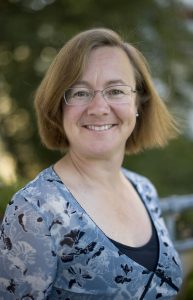
The ‘infiltrator’, the ‘refugee’ and the spaces in between: mutations in citizenship, forms of resistance, and the evolvement of the Israeli asylum regime
A number of years before the contemporary ‘refugee crisis’ in Europe, a country on the continent’s imagined fringes, Israel, perceived by many then refugees as ‘the Europe we can walk to’, experienced an unprecedented movement of non-Jewish refugees from Eritrea and Sudan. In fact, in terms of political responses as well as public representations, the whole scale of the European response, from Budapest to Berlin, could be observed in sharp focus in the reaction of different sections of Israeli society and among its political leadership. This paper interrogates these processes and the evolvement of the Israeli asylum regime based on fieldwork among African refugees in Tel Aviv, as participant observer and otherwise engaged in NGO contestation, and through the analysis of important political and legal processes over time. The paper argues that on the one hand a bifurcation of quasi-citizenship rights has characterized the official response, the latter becoming more exclusionary over time, and as such confirming the dictum that the refugee can be seen as a symbol for the contradictory logic of an international political order whereby universal rights are distributed or denied in practice through the politics of nationalism. On the other hand, contestations have emerged from below through acts of insurgent citizenship, together with new forms of solidarity. The latter have become forms of sustained solidarity mainly in spaces where professional expertise guided engagement with refugees and migrants, or where people literally welcomed refugees into their homes and lives, and it is here that new conceptions of citizenship that transcend a global order that enforces divisions between ‘them’ and ‘us’ has come to the fore. These dynamics raise some important questions not only about global movements like the sans papiers, but also about volunteering and its impact on public perceptions and welcoming cultures. |
|
Tanja R. Müller is Senior Lecturer in International Development at the Global Development Institute and founding member and former director of research of the Humanitarian & Conflict Response Institute, both at the University of Manchester. Tanja has worked extensively on the Horn of Africa for more than two decades, with a particular focus on Eritrea. She is currently the convenor of the Manchester Migration Lab and her latest research interrogates insurgent citizenship as a politics of resistance, partly among diaspora populations from the Horn of Africa. |
| Loredana Polezzi (University of Cardiff) |
|---|
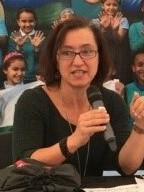
New Citizens or Old Traitors? Representing translation and translators in contemporary migrant fiction
The Italian expression ‘traduttore traditore’ is often understood to refer to the product of a translator’s work and to the philosophical debate about the possibility or otherwise of producing a ‘faithful’ translation. Yet that dictum can also be read, in a much more literal and embodied sense, as a testimony to the suspicion in which translators and interpreters are held by the groups between which they mediate. This attitude is particularly strong when the translator (or self-translator) is also a ‘migrant’: a multilingual agent whose legal status as a citizen is destabilized by mobility and whose allegiance to multiple communities is itself perceived as potentially suspect. It is not surprising, therefore, that translators and interpreters should figure prominently in narratives of migration. In this paper, I will look at how writers from different backgrounds have approached the question of translation, legal status and citizenship practices in recent narratives written in Italian. Using fictional accounts written by authors such as Amara Lakhous, Ron Kubati and Cristiana De Caldas Brito, I will examine three related sets of questions: How are translators and translation represented in narratives of migration, in particular with respect to the relationship between legal systems, citizenship and the ethics of translation? How is the law represented in these narratives and what does that say about migrants as citizens as well as translators? What do these representations tell us about the biopolitics of contemporary societies and, specifically, about the biopolitics of language? As an important corollary, what do they tell us about the way in which language has been and continues to be discussed in biological terms? How do narratives of migration and translation critique dominant notions of language, translation and citizenship? What alternative models of belonging and models of translation do they propose? |
|
Loredana Polezzi is Professor of Translation Studies in the School of Modern Languages at Cardiff University. Her main research interests are in the connection between translation, migration and other forms of travel. Her recent work focuses on practices of multilingualism, translation and self-translation. With Rita Wilson, she is co-editor of The Translator. She is a co-investigator in the research projects ‘Transnationalizing Modern Languages’ and ‘Transnationalizing Modern Languages: Global Challenges’, funded by the UK’s Arts and Humanities Research Council. She is also a founding member of the ‘Cultural Literacy in Europe’ network and the current president of the International Association for Translation and Intercultural Studies (IATIS).
|
| Henry Jones (University of Manchester) |
|---|
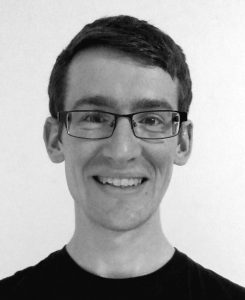
‘Mutations In Citizenship’: A corpus-based analysis
Genealogies of Knowledge (GoK) is a multidisciplinary research project, based at the University of Manchester, which aims to explore the historical evolution and transformation through translation of key concepts underpinning modern political and scientific discourse. To this end, our team is building a series of large and diverse electronic corpora of Classical Greek, Early Latin, Medieval Arabic and Modern English translations, commentaries and original writings, produced at different times by different authors over the past 2,500 years. By comparing and contrasting the ways in which concepts such as ‘citizenship’, ‘democracy’, ‘proof’ and ‘evidence’ are discussed, re-interpreted and contested in the corpus texts, our research seeks to shed new light on key moments of change in the development of these ideas as they have travelled across time and space. We additionally provide the wider academic community with restricted access to these corpora via a suite of online corpus analysis software tools, freely available from our project website (https://genealogiesofknowledge.net). This case study presentation has two core objectives: first, I aim to demonstrate the potential of the GoK corpora and the project’s software tools for gaining an understanding of historical developments in the definition and experience of ‘citizenship’ by tracing its constituent parts back to their roots in Classical Greek thought. Second, I seek to provide a useful survey of the ways in which these meanings are currently being renegotiated in the age of accelerated globalisation though an analysis of contemporary critical and activist discourse. Indeed, by exploiting the capacity of computer-aided concordancing technologies to highlight patterns present not only within a single text but also across whole collections of texts, I attempt to provide insight into the complex mutations this concept has undergone over the centuries, as well as an indication of its future potential and possible trajectories. |
|
Henry Jones is a post-doctoral research associate at the University of Manchester, UK. He holds a BA in French Studies from the University of Sheffield and an MA in Translation Studies from the University of Manchester. Having developed an interest in the roles of translators and translation in the production of knowledge, his recently completed PhD thesis explores the complex multilingual practices involved in the collaborative construction of the user-generated encyclopaedia Wikipedia. He now hopes to make further contributions to this area of investigation through his work on the Genealogies of Knowledge project.
|
| Mona Baker (University of Manchester) |
|---|
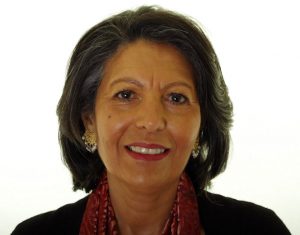
Representations of Refugees and Migrants in the Genealogies Corpus: The radical left reaches a discursive stalemate
The current composition of the Internet sub-corpus developed by the Genealogies of Knowledge research team is heavily biased towards radical left outlets such as Mother Jones, Left Flank, ROAR (Reflections on a Revolution), Salvage Zone and Open Democracy. Drawing primarily on this resource, this presentation will argue that radical left politics is caught up in the rhetoric of the right and of mainstream institutions in society, reproducing the same discursive patterns even as it sets out to challenge them. Dominant patterns in the Internet corpus reveal that the migrant/refugee distinction enforced by mainstream institutions remains largely intact in leftist discourse, and that the left is entangled in the same politics of labelling imposed by the right, especially the distinction between (economic) migrants who create a crisis for Europe and do not merit support, and desperate refugees to whom we have obligations. Refugees and migrants, moreover, are represented as victims with no agency, are discussed in legal terms that serve to dehumanize them, and are repeatedly ‘quantified’ as a homogenous and potentially problematic category. A subcorpus of translations of ancient Greek texts such as Thucydides’ The Peloponnesian War and Herodotus’s Histories will be used to demonstrate a different conceptualisation of refugees in classical antiquity – and/or in nineteenth- and early twentieth-century receptions of texts originating in classical antiquity – and the possibility of developing an alternative discourse to represent them in the present. |
|
Mona Baker is Professor Emerita of Translation Studies at the Centre for Translation and Intercultural Studies, University of Manchester and Director of the Jiao Tong Baker Centre for Translation and Intercultural Studies, Shanghai. She is Principal Investigator on the AHRC-funded project Genealogies of Knowledge: The Evolution and Contestation of Concepts across Time and Space, and co-editor, with Luis Pérez-González and Bolette Blaagaard, of the Routledge series Critical Perspectives on Citizen Media. She is author of In Other Words: A Coursebook on Translation (Routledge, 1992; third edition 2018) and Translation and Conflict: A Narrative Account (Routledge, 2006), Editor of Translating Dissent: Voices from and with the Egyptian Revolution (Routledge, 2016), the Routledge Encyclopedia of Translation Studies (1998, 2001; second edition, co-edited with Gabriela Saldanha, 2009); Critical Concepts: Translation Studies (4 volumes, Routledge, 2009); and Critical Readings in Translation Studies (Routledge, 2010). Her articles have appeared in a wide range of international journals, including Social Movement Studies, Critical Studies on Terrorism, The Translator and Target.
|
